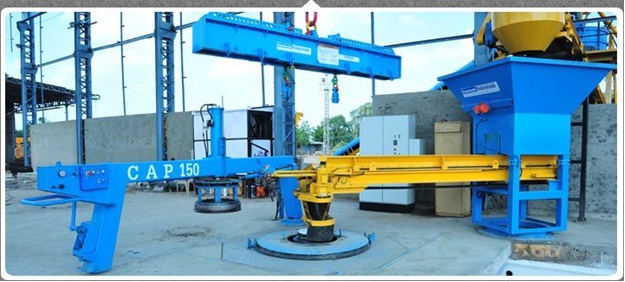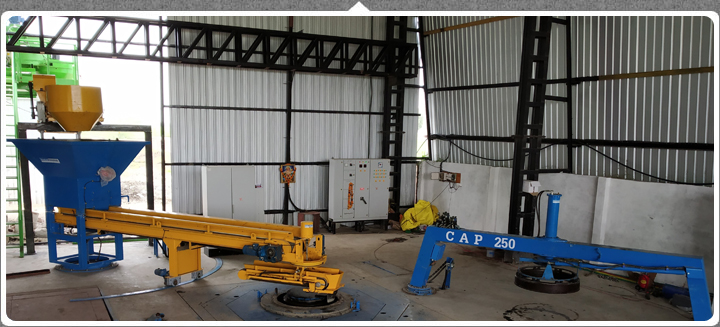
A great deal of construction occurs on a daily basis and deals for new construction are made almost daily too. Some of these setups are small scale while some are large construction sites. The structure of a new project will usually involve planning, design, financing and finally execution. Since concrete is the most common building material in the world, it is no big surprise it is commonly found on a construction site. Concrete pipe making machines help fulfill concrete pipe requirement of a construction firm.
Almost all construction sites require pipes of some kind. Concrete pipes have been around for a long time, which is one of the main advantages of using it. Besides that, it is also durable, serviceable. Most modern-day sewer systems make use of concrete pipe as well.

What is Concrete Pipe?
Concrete pipes are one of the strongest pipes available since they have a special design to take heavy loads. These concrete pipes can be further strengthened by reinforcing them with wires.
There is also a different type of concrete pipe known as the RCC Hume pipe. These pipes are stronger, spun pipes and mainly useful for a drainage system. The making process of these pipes is slightly different from other concrete pipes. The process is known as Hum/Spun pipe process and makes use of a Hume pipe making machine. It uses a centrifugal process, is more labor-oriented, less productive and quality depends more on the skill of an operator. Such pipes are useful in developing countries.
Stats and Facts
Surveying and research analysis take place on a regular basis in the construction industry. Here are several statistics and facts as per the transparency market research in 2017.
- Global demand for concrete blocks in the Asia Pacific was 1,616 billion units.
- There is expected to be a rising demand for CAGR of 3.5% during the period 2017 to 2027.
- By the year 2027 Concrete Pipe & Concrete Block demand likely to reach 2769.24 Billion units
- The fact that it is resistant, earthquakes proof and sound proof is a big advantage.
- Concrete has helped people building great structures since ancient Roman times and are in use even more now.
- This is the most environmentally friendly method of making pipes and is also recyclable.
- One of the other major benefits is that they absorb heat, do not emit toxic flames if on fire and they also do not emit toxic gasses.
- The global concrete pipe market will have an estimated value of $23.7 billion by 2023. The CAGR is anticipated to be 2.5% from 2018 to 2023.
- Concrete pipe market is likely to be the chosen material in the future for this purpose of making a sewage, drainage, potable and irrigation sectors as well.
- Several studies also hint at the Asia Pacific remaining the largest region for concrete pipes applications and also witness the highest growth.
Applications of Concrete Pipe
There are many applications for concrete pipes including stormwater drains, sewers, and culverts. A stormwater drain is essential for the purpose of removing excess stormwater and it is essential that it be reliable and sturdy. Similarly, it is essential for a sewer system to be free from rust and not affect the environment, and maintain structural integrity at all times. The placement of culverts is usually under a man-made structure such that water can flow underneath. It must be capable of sustaining the heavy load, be fast flowing water and be of appropriate size.
A concrete pipe making machine helps construct concrete pipes that are durable, very strong and economical which makes them the perfect fit for such applications.
Recent Articles
- Precast Concrete Box Culvert for Urban Underpasses and Cable Trenches
- How Concrete Pipe Machines Crucial in Power Plant Infrastructure?
- Role of Concrete Pipe Machines in Canal Lining Projects
- How Drycast Technology is Changing the Concrete Pipe Industry?
- Common Mistakes to Avoid When Selecting Pipe Moulds for Your Machine





 BACK TO ARTICLES
BACK TO ARTICLES